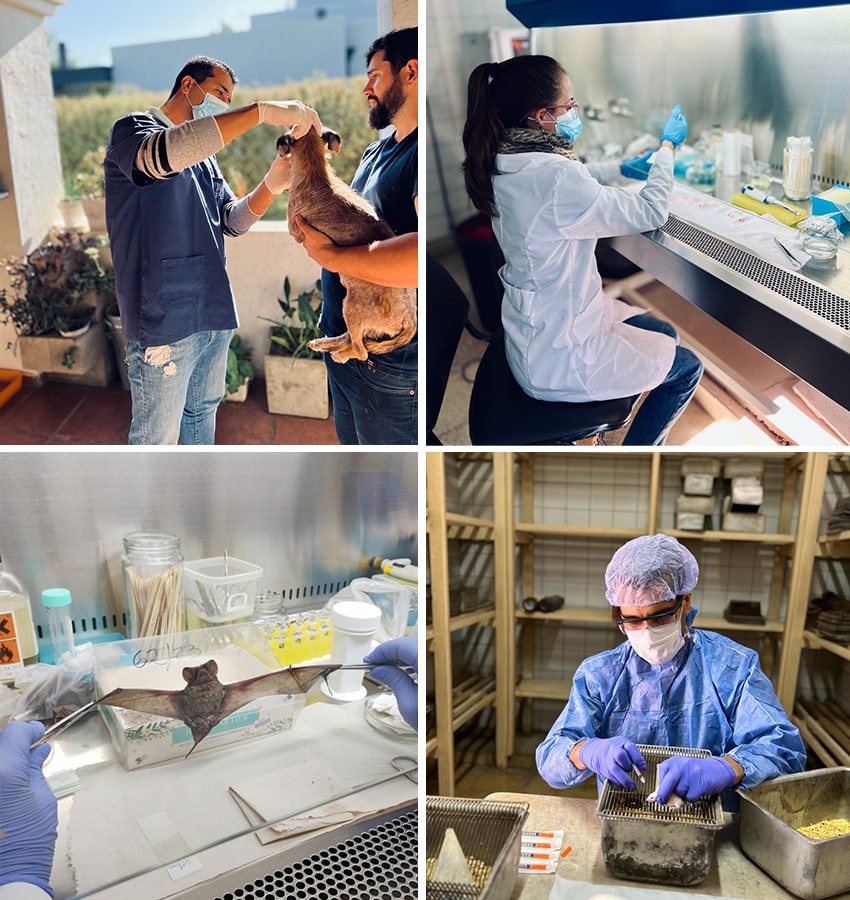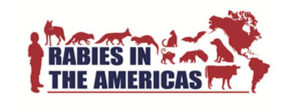
Awards
George M. Baer Latin American Researcher Award
The George M. Baer Latin American Researcher Award is given to a young researcher from a Latin American country for his or her outstanding work in the field of rabies research.
GEORGE M. BAER, MPH, DVM (1936-2009): Dr. George Martin Baer, one of the founding members of the Conference on Rabies in the Americas, passed away on June 2, 2009, in Mexico City, Mexico. He was an eminent virologist, veterinarian, and public health scientist, with a strong affection for the developing world.
Dr. Baer was born in London, England, but grew up in New Rochelle, New York, where he became an accomplished equestrian and began a lifelong love of animals. He attended Cornell University, where he earned a bachelor’s degree in agricultural science in 1954 and a bachelor’s degree in veterinary medicine in 1959. She earned a Master of Public Health from the University of Michigan in Ann Arbor during 1961.
Thereafter, Dr. Baer began his career in public health at the US Centers for Disease Control and Prevention, Albany Health Department, where he focused on brucellosis, psittacosis, and rabies. In 1964, he worked at the CDC’s Southwest Rabies Research Laboratory in Las Cruces, New Mexico, on rabies in bats. During 1966 to 1969 he was a consultant to the Pan American Health Organization in Mexico. Based on his efforts, he helped lay the foundation for Mexico’s public health programs against rabies, an effort he continued for the rest of his professional life. In 1969, he returned to Atlanta and became director of the CDC’s Rabies Laboratory.
With his research team, he developed a method for immunizing wildlife, for which he was credited as the “Father of oral rabies vaccination.”. His considerable experience made him one of the leading international experts in this field.
Of his more than 100 publications, his 1991 book, “The Natural History of Rabies,” remains a definitive reference in the field.
After retiring from the CDC, he founded a diagnostic laboratory in Mexico City and remained a member of the Mexican International Steering Committee for the Conference on Rabies in the Americas.
For his many contributions, one of which focused on the transfer of relevant technology to the developing world, the International Steering Committee of the Conference on Rabies in the Americas voted unanimously to name the annual award for the best presented abstract by a scientist. of Central/South America in his honor: the George M. Baer Latin American Researcher Award.
Ivanete Kotait Award for Brazilian Researcher
The Ivanete Kotait Brazilian Researcher Award is awarded to a researcher from Brazil for outstanding work in the area of rabies research. It is named in honor of Dr. Ivanete Kotait, one of the founding members of the Brazilian section of the International Steering Committee of the Conference on Rabies in the Americas (RITA).
She was an eminent veterinary diagnostician and public health scientist with a strong affection for the developing world. Dr. Kotait helped lay the groundwork for Brazil’s current agricultural and public health programs against rabies, an effort that.

Ivanete Kotait and George M. Baer Award Nomination Requirements:
- Brazilian nationality for the former and Latin American nationality for the latter.
- Previous experience in the area of rabies under 10 years.
- Have been chosen by your research group as the person who contributed substantially more in line with the scope of the postulated work.
- Not have been chosen as the winner of this award previously.
Eligibility criteria analyzed by the International Steering Committee to award the mention:
- Innovation.
- Clarity and quality of the abstract presented.
- Regional impact.
- Presentation in English.
The winner of the prize gets:
- Presentation of the chosen paper in a special session of the conference.
- Free registration to the event.
- Transportation, food and lodging to the event.
How to Apply:
The application package consists of three parts:
- A brief history of your interest in the study of the field of rabies.
- The extended research abstract should include an introduction, objectives, experimental design, material and methods, results (up to two tables and/or two graphs), discussion sections, and conclusions. The relevance of the results presented for public health in Latin America should be specified. Bibliographic references must be a maximum of 5. The text should not exceed 500 words, excluding authors and references. Read all instructions carefully. Incomplete applications will not be considered.
- Currículum vitae.
- The application must be submitted in English. The winner of the prize may make the oral presentation in Spanish, Portuguese or English, but the slides must be presented in English.
- The applicant must email the application package directly to the RITA International Steering Committee.
- Save your completed application package as an MS Word file using the following naming template: “IK Award 2024 – LAST NAME, FIRST NAME” or “GB Award 2024 – LAST NAME, FIRST NAME” as the case may be.
- Please submit your completed application package via email rita2024awards@fundacioncassara.org.ar using the subject line: “IK Award 2024 – LAST NAME, FIRST NAME” or “GB Award 2024 – LAST NAME, FIRST NAME” as the case may be.
- Applications must be received by June 15 at 11:59 p.m. EST to be considered at RITA 2024.
You will receive a confirmation of receipt of your application packet and the winner will be notified on July 1, 2024.
If you have any questions about the application process, please email rita2024@fundacioncassara.org.ar.
